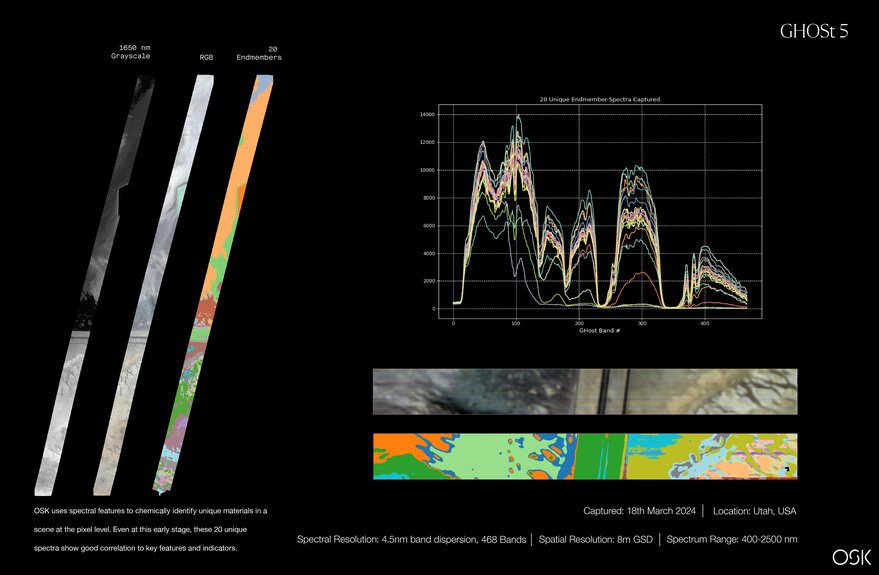MOUNTAIN VIEW, Calif. — Space startups are continuing to explore applications for artificial intelligence, from large language models to neural networks.A ChatGPT bot, for example, reads Orbital Sidekick’s Slack channel because “one of the hardest things for us was keeping track of where and when the datasets for customers were coming through,” said Tushar Prabhakar, Orbital Sidekick chief operating officer and co-founder, said Feb. 4 at the SmallSat Symposium here. “We can ask [the bot] questions and it alerts us when a dataset is here.”In the future, Orbital Sidekick executives expect large language models to help analyze historical data. Customers that rely on Orbital Sidekick to monitor oil and gas pipelines could see where and when previous leaks occurred.In addition, Orbital Sidekick is investing in neural networks to correct data labels.“Not many people talk about false alarms in the geospatial world,” Prabhakar said. “When you’re detecting methane or liquid hydrocarbon, they’re everywhere.”Unglamourous WorkAlan Campbell, AWS principal space solutions architect, also sees merit in “unglamourous” AI applications.“Summarizing documents, improving code efficiency, these are great uses for large language models,” Campbell said.Millennium Space CEO Tony Gingiss said AI tools will not replace human workers, but can make them more efficient. A lot of people struggle to keep track of the hundreds of emails they receive daily.“Can we figure out how to process that data and get through the noise to the important stuff? That will be a transformative thing,” Gingiss said.Novel ApplicationsSome AWS customers are exploring novel AI applications.Generative AI helps Finland-based Iceye pair synthetic aperture radar imagery they acquire from their small satellite constellation with social media images showing flood levels. With that information, Iceye “generates first-pass situational reports to local authorities,” Campbell said.Another AWS partner, Degas Ltd., a Tokyo-based agriculture-focused financial technology firm, developed a chatbot for farmers in Ghana.“The farmer can say, ‘What are the best agricultural practices for my specific farm,’” Campbell said. “The chatbot will give a targeted, localized answer based on a geospatial foundational model.”Double-Edged SwordIn spite of the merits of AI tools, Lucy Hoag, founder and CEO of Violet Labs, a San Francisco-based software developer, advised caution.Last week, Violet Labs noted part of an application that streamlines hardware engineering task was running slowly. After investigating, Violet Labs engineers realized the problem was to a programming technique recommended by Microsoft Copilot.The recommended recursion function was well suited to a certain scale of operations. “If you grow out of that scale, it becomes really terrible,” Hoag said. “It’s a double-edged sword.”
By Tyler Mitchell
Tyler is a renowned journalist with years of experience covering a wide range of topics including politics, entertainment, and technology. His insightful analysis and compelling storytelling have made him a trusted source for breaking news and expert commentary.
